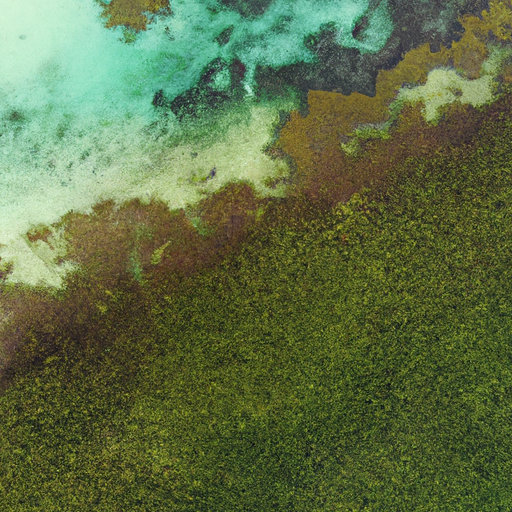-
Table of Contents
What Affects the Marine Environment?

The marine environment is a delicate ecosystem that is greatly influenced by various factors. These factors can have both positive and negative impacts on the marine life and the overall health of the oceans. Understanding these influences is crucial in order to protect and preserve this vital ecosystem for future generations. In this article, we will explore the different factors that affect the marine environment and their implications.
Marine Environment Factors
The marine environment is influenced by a multitude of factors, including natural and human-induced changes. These factors can have significant effects on the marine ecosystem, altering the balance of marine life and disrupting the delicate ecological processes.
- Climate Change: Climate change is one of the most pressing issues affecting the marine environment. Rising temperatures, melting ice caps, and changing weather patterns have a profound impact on the oceans. This leads to the acidification of seawater, which poses a threat to marine life, particularly coral reefs and shellfish.
- Pollution: Pollution, both from land and sea-based activities, is a major concern for the marine environment. Industrial waste, oil spills, and plastic pollution contaminate the waters, harming marine organisms and disrupting their habitats. This pollution can lead to the death of marine species and the destruction of coral reefs.
- Overfishing: Overfishing is a significant threat to the marine environment. The excessive harvesting of fish species disrupts the balance of the food chain and depletes fish populations. This not only affects the fish themselves but also impacts other marine organisms that rely on them for food.
- Coastal Development: The rapid growth of coastal development has led to the destruction of coastal habitats such as mangroves and seagrass beds. These habitats serve as nurseries for many marine species and their destruction can have far-reaching consequences for the marine ecosystem.
These factors, among others, contribute to the degradation of the marine environment and pose significant challenges for its preservation. It is essential to address these issues through sustainable practices and conservation efforts to ensure the long-term health of our oceans.
Oceanic Ecosystem Change
The marine environment is a complex ecosystem that is constantly changing. Natural processes and human activities can cause significant shifts in the oceanic ecosystem, affecting the distribution and abundance of marine life.
One of the key factors contributing to ecosystem change is the alteration of ocean currents. Changes in ocean currents can impact the distribution of nutrients, affecting the growth and survival of marine organisms. This can lead to shifts in the composition of marine communities and disrupt the balance of the ecosystem.
Another factor that influences the oceanic ecosystem is the introduction of invasive species. Invasive species can outcompete native species for resources, leading to a decline in biodiversity. They can also disrupt the natural food chain and alter the structure of the ecosystem.
Additionally, the loss of coastal habitats such as coral reefs and mangroves has a significant impact on the oceanic ecosystem. These habitats provide shelter, breeding grounds, and feeding areas for many marine species. Their destruction can result in the loss of biodiversity and disrupt the intricate web of life in the oceans.
Sea Life Threats
The marine environment is home to a diverse range of sea life, from microscopic plankton to majestic whales. However, these marine organisms face numerous threats that jeopardize their survival and the overall health of the oceans.
- Overfishing: As mentioned earlier, overfishing is a major threat to sea life. The excessive harvesting of fish species can lead to the collapse of fisheries and the loss of important food sources for marine predators.
- Plastic Pollution: The accumulation of plastic waste in the oceans poses a significant threat to marine life. Sea turtles, seabirds, and marine mammals often mistake plastic debris for food, leading to ingestion and entanglement. This can result in injury, suffocation, and even death.
- Coral Bleaching: Rising ocean temperatures and pollution contribute to coral bleaching, a phenomenon that causes corals to expel the algae living within their tissues. This leads to the loss of color and can ultimately result in the death of coral reefs. Coral reefs are vital habitats for numerous marine species, and their decline has far-reaching consequences for the entire ecosystem.
- Acidification: The increasing levels of carbon dioxide in the atmosphere are absorbed by the oceans, leading to ocean acidification. This acidification can have detrimental effects on shell-forming organisms such as oysters, clams, and coral reefs. It weakens their shells and skeletons, making them more vulnerable to predation and hindering their ability to build and maintain their habitats.
These threats to sea life highlight the urgent need for conservation measures and sustainable practices. By addressing these issues and implementing effective management strategies, we can protect and restore the marine environment for future generations.
In conclusion, the marine environment is influenced by various factors that can have both positive and negative impacts. Climate change, pollution, overfishing, coastal development, and other factors contribute to the degradation of the marine ecosystem. Changes in oceanic ecosystems, sea life threats, and the loss of biodiversity further exacerbate the challenges faced by the marine environment. It is crucial that we take immediate action to mitigate these impacts and work towards a sustainable future for our oceans.